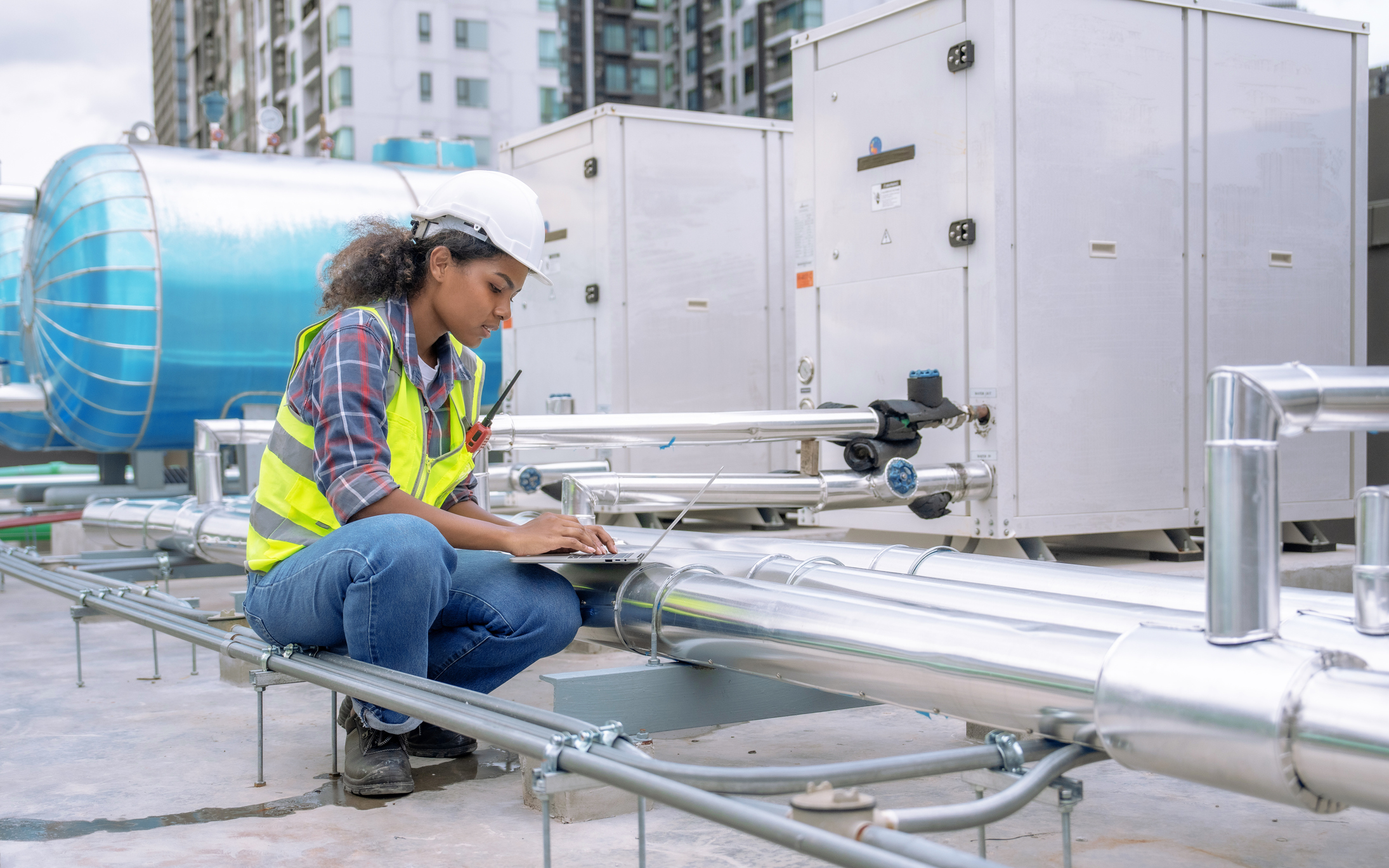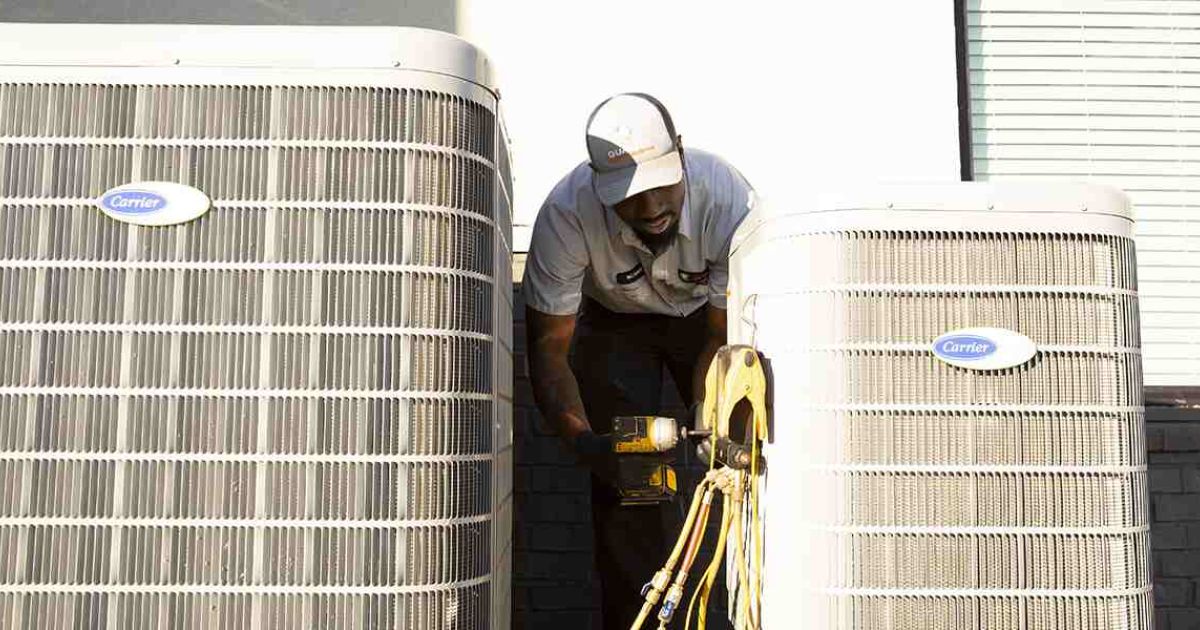Residential Heating and Air Conditioning Solutions for Year-Round Comfort
Residential Heating and Air Conditioning Solutions for Year-Round Comfort
Blog Article
A Comprehensive Consider Cooling And Heating Solutions and Their Influence On Energy Performance and Cost Cost Savings
The role of cooling and heating services in improving power effectiveness and attaining price financial savings is more critical than ever, as services and house owners seek sustainable remedies in an increasingly eco-conscious world. With technical developments like wise thermostats and high-efficiency parts, the capacity for maximizing system efficiency is substantial. Yet, real impact of these developments depends mainly on routine maintenance and positive issue monitoring. As we check out the intricate connection between heating and cooling systems and functional prices, consisting of the change in the direction of eco-friendly options, the inquiry emerges: just how can these approaches be efficiently executed to maximize both financial and environmental advantages?

Significance of A/c Equipments
a/c systems are a crucial element of modern-day buildings, playing an essential function in maintaining comfortable and healthy and balanced interior settings. These systems, including ventilation, heating, and air conditioning, are necessary for controling temperature level, moisture, and air high quality, thereby ensuring the health of passengers. Effective HVAC systems add considerably to creating an ideal indoor climate, which is critical for both industrial and residential rooms.
In industrial structures, heating and cooling systems are essential to providing a risk-free and effective environment. By regulating indoor environment conditions, these systems help protect against the growth of mold and mildew and the spread of air-borne pollutants, thus guarding the health of clients and staff members. Additionally, in household settings, cooling and heating systems improve living problems by using regular thermal comfort and improving indoor air high quality, which is important for overall health and wellness.
Furthermore, the design and upkeep of a/c systems have a direct impact on energy usage and functional prices. Properly created and kept systems can considerably minimize energy use, causing lowered utility expenses and a smaller carbon footprint. The efficiency of these systems hence plays a vital function in advertising sustainability and energy conservation within buildings, highlighting their value in the modern-day architectural landscape.
Developments in Cooling And Heating Modern Technology
Advancement in HVAC technology is changing the means structures handle indoor environments, introducing a brand-new period of effectiveness and control. Recent developments have focused on optimizing energy consumption while boosting customer comfort. One noteworthy growth is the assimilation of wise thermostats, which use expert system to learn tenancy patterns and change temperatures accordingly, reducing unnecessary energy usage.
Variable Cooling Agent Flow (VRF) systems represent another considerable leap forward. These systems permit exact temperature control in different areas of a structure, enhancing comfort and minimizing energy waste. VRF technology is specifically valuable for big commercial rooms, offering versatility and scalability.
Additionally, the introduction of Net of Points (IoT) tools has actually changed a/c systems into interconnected networks efficient in real-time information collection and analysis. This connection enables anticipating maintenance, making certain systems operate at peak performance and lessening unexpected downtime.
In addition, advancements in products and style, such as making use of high-efficiency coils and compressors, have enhanced overall system efficiency - Heating Contractor. The adoption of eco-friendly refrigerants likewise underscores the market's dedication to sustainability
These technological developments are pivotal in minimizing operational costs and environmental impact, setting brand-new criteria for building environment monitoring.
A/c Upkeep and Effectiveness
Making certain optimal performance of cooling and heating systems prolongs past technical advancements; it likewise pivots on reliable upkeep practices. Routine upkeep is crucial for sustaining efficiency, lowering power usage, and prolonging the life span of a/c systems. The key objective is to make certain that all components work at their peak capacity, thus reducing energy waste and preserving constant interior convenience degrees.
Routine maintenance tasks, such as cleaning or replacing air filters, checking refrigerant levels, and inspecting ductwork for leaks, are vital for preventing unneeded strain on the system. Blocked or dirty filters can obstruct air flow, triggering the system to work more difficult and take in even more energy. Also, inadequate refrigerant levels can lower cooling down performance, resulting in higher operational prices.
In addition, periodic evaluations by qualified experts can determine possible concerns prior to they rise into costly repair work or system failings. These assessments often consist of examining electric connections, adjusting thermostats, and ensuring the general stability of the HVAC system. By addressing small problems early, home owners and services can stay clear of unexpected failures and improve energy effectiveness.
Affordable A/c Solutions
For those looking to get one of the most out of their air, heating, and ventilation conditioning systems without breaking the bank, checking out cost-effective heating and cooling remedies can make a considerable difference. One instant step is to buy programmable thermostats, which enable individuals to set particular temperature levels for various times of her comment is here the day, maximizing power use and decreasing unneeded usage. By automating temperature level changes, property owners can accomplish significant savings on power costs.
Regular upkeep is one more critical component of cost-efficient a/c monitoring. Making sure that filters are cleansed or changed regularly, ductwork is secured, and units are serviced by experts can protect against costly repair work and improve system long life. Preventative upkeep not only maintains system efficiency but also helps in preventing unforeseen break downs that can bring about pricey emergency situation repair services.
Furthermore, retrofitting existing systems with energy-efficient components, such as variable speed motors or high-efficiency compressors, can be a sensible financial investment. These upgrades enhance operational efficiency, reduce power use, and can typically be applied at a fraction of the price of a full system substitute.
Environmental Influence Decrease
Minimizing the environmental effect of Cooling and heating systems is vital in today's pursuit of lasting living. HVAC systems are considerable factors to energy consumption, accounting for almost 40% of energy use in commercial buildings.
Technical developments in heating and cooling design and operation, consisting of the assimilation of smart thermostats and energy-efficient heatpump, are critical in lowering carbon impacts. These developments permit for optimized energy usage, decreasing waste and improving general system performance. Additionally, taking on regular maintenance methods makes certain HVAC systems run at peak performance, additional curtailing unneeded power consumption.
Furthermore, making use of eco-friendly cooling agents is important, as standard refrigerants, like CFCs and HCFCs, have actually visit homepage been terminated as a result of their ozone-depleting residential properties. Modern alternatives, such as hydrofluoroolefins (HFOs), offer lowered environmental dangers, lining up with global ecological methods. By welcoming these sustainable practices, heating and cooling services can play a transformative duty in reducing ecological impacts, promoting energy performance, and fostering a more lasting future.
Final Thought

In addition, the design and upkeep of A/c systems have a direct effect on power intake and operational expenses. click to investigate Routine upkeep is vital for sustaining performance, decreasing power intake, and extending the life span of Cooling and heating systems. Heating and cooling systems are significant factors to energy consumption, accounting for nearly 40% of energy use in industrial buildings. Additionally, taking on routine maintenance techniques makes certain HVAC systems run at peak effectiveness, further reducing unnecessary energy intake.
The shift to ecologically pleasant A/c systems additionally minimizes functional prices and promotes sustainability. (Heating Contractor)
Report this page